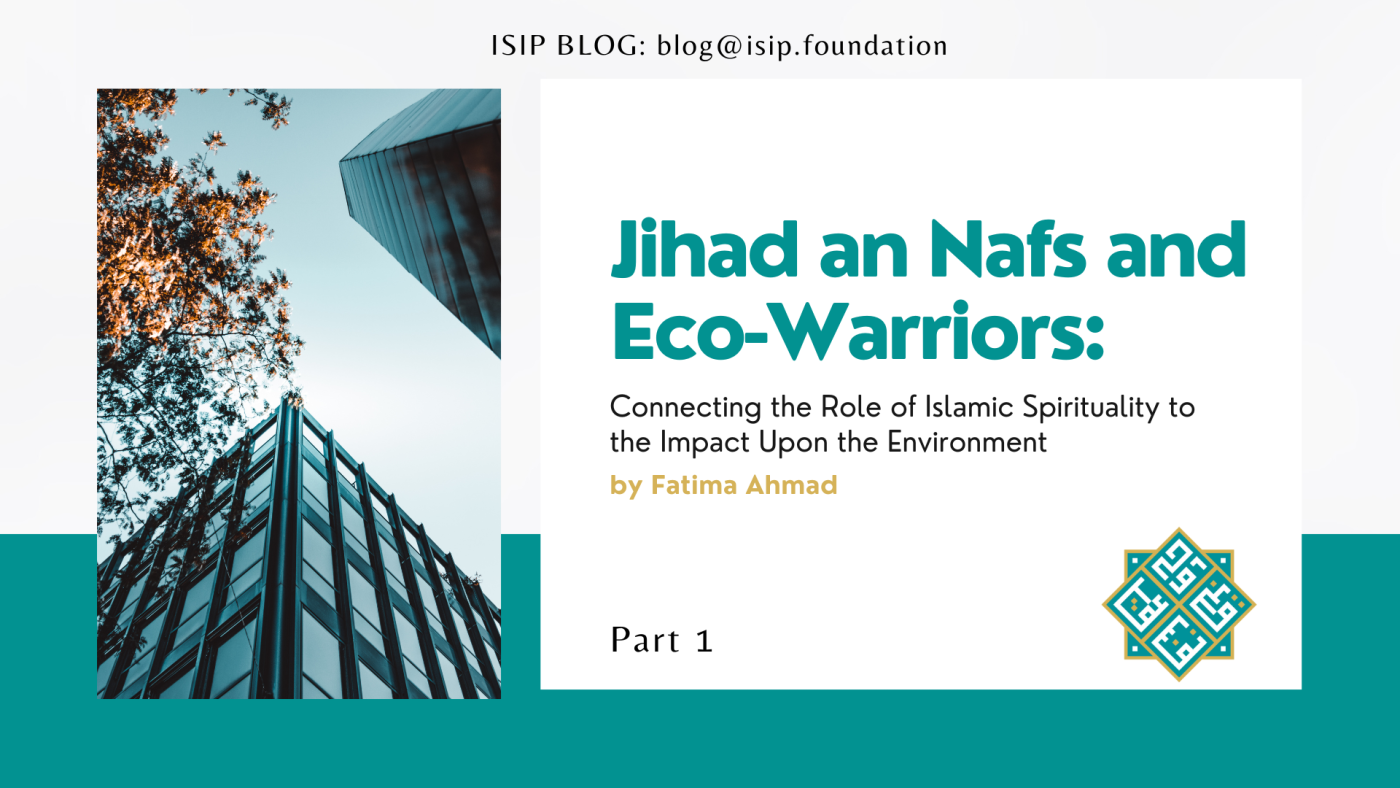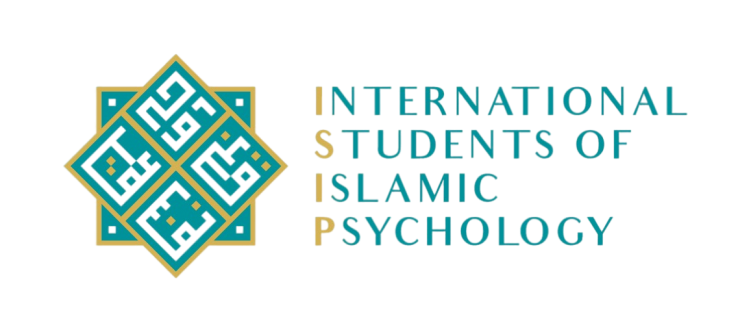
Part 1
In the Quran, Allah Most High, refers to the human beings as “khalifa” upon the earth (Q 2:30).. This word has been translated in English as viceroy, steward, and vicegerent, but all of them indicate the responsibility of human beings upon the earth. Also within the Quran is the repeated reminders, indeed, a requirement, to be engaged in jihad an nafs (struggling against the lower self) or tazkiya tun nafs (purification of the soul). When we think about spirituality and purifying our soul, we would actually simultaneously become an eco-warrior as well, someone working towards the well-being of the planet and its inhabitants. The two are in fact related. For Muslims there needs to be a clear connection made that by working to purify the soul an added benefit is also to live in a more ecologically friendly and harmonious manner with the environment.
Many of the spiritual diseases of the heart, mentioned by our scholars such as Imam al Ghazali in the Ihya Ulum ad Deen and Minhaj al Abideen, include arrogance (takabbur) and pride, ostentation (riya), conceit, (ujb) and excessive desire for this world (tul al amal). These spiritual diseases find their remedies in the virtues encouraged to acquire in the process of jihad an nafs in the Quran and Hadith.
- Abstaining (Zuhd)
To counteract the aforementioned diseases cultivating and training the heart to practice refraining and abstaining from our desires (zuhd), which is mentioned and highlighted in the Quranic ayah (79 v. 40-41) [But unto him who shall have stood in fear of his Sustainer’s Presence, and held back his inner self from base desires, paradise will truly be the goal!]
Dr. Maria Dekake from George Mason University (2018) mentions that in order to curb consumerism, we need that aspect of discipline and restraint. Why do millions of Muslims and Christians and Jews and Buddhists engage in fasting? Dietary restrictions, religious laws, and principles of engagement set down by revelation are all integral parts of following a religion and are ways that shape a human being to learn how to have self-restraint.
- God-consciousness (Taqwa)
There is the central aspect of becoming God-conscious or in Arabic taqwa, which is largely what the Quran is calling its listeners to. Every ritual form of worship is trying to inculcate God-consciousness. God in the Quran explicitly mentions this for fasting in Ramadan (2: 183). From the framework of the Islamic concept of the transitory nature of this world and the everlasting world (Life After Death) is the notion of knowing that humans will be standing before their Creator with a sense of responsibility answering for their actions (Q. 64: 7) and being a vicegerent on the earth (Q 2:30). The word that’s used in the verse from the second chapter (Q 2:30), is ‘khalifah’ or vicegerent, one may even translate as a steward of the earth. Within developing the God-consciousness there’s a sense of accountability and responsibility- there is someone higher than the self to answer to. When there is no sense of accountability then it’s easy to indulge, go to extremes and lose a sense of the middle ground.
- Balance (Wasattiyah)
There is also the reference in the Quran of Muslims being “ummatun wasatan” (a middle nation). The concept of wasat or being in the middle ground to temper extremes in any form and find the middle way. In the hadith of the Prophet Muhammad, peace be upon him, there are examples of him encouraging people to take the middle ground, to fast and then to not fast, to get up at night and to sleep at night (Sahih Bukhari 1141). He himself embodied balance in his own lifestyle, character and worship and hence is referred to as the “uswatun hasanaat” (Q 33:21) the excellent role-model to follow.
- Contentment (Rida)
Contentment is a spiritual state that when inculcated is independent of what material needs one has or doesn’t have. The contented soul (nafs al mutaminnah) is the one who is content with what God has decreed. If their status changes at any point with natural disasters or forced migrations or any type of thing of which humans have no control, there’s still an ability to hold wealth in the heart and not necessarily in the hand. The Prophet Muhammad, upon him be peace, gave a redefinition of richness to include contentment when saying, “Richness is not an abundance of worldly goods, rather richness is contentment with one’s lot (within the self, ghinna an nafs).” (Sunan Ibn Majah 4137)
- Gratitude (Shukr)
The connection between these spiritual diseases and the Islamic solutions (developing more God-consciousness, contentment, moderation, gratitude) or in general being a more spiritual person helps the environment and sustainability in very practical ways. By strengthening the spiritual and religious paradigms that Islam has to encourage humans to have more gratitude will create persons with less greed and less consumption.
Also when there is a realization that each person has a soul, that is yearning to connect to God, treating people in ways that are befitting with that noble purpose will also create humans more invested in human relationships. This would entail less human exploitation for personal or corporate advancement. A simple look at fast fashion shows the majority of the global south is involved in manufacturing cheaply made and easily accessible clothing for the global north and this is largely done in horrendous conditions in sweatshops (Moberg, 1998).
Being invested in human relationships and being more God-conscious and knowing that there is accountability for the way that people are treated on earth, has a huge impact on the environment. The exploitation of resources and humans are largely driven by profit-making and capitalism. Furthermore, being a more God-conscious person and bringing spirituality to the forefront allows for contemplation and focusing on being present with persons and the natural signs so there is room to introspect on the wonders of God, and the diversity of people and not just focus on being efficient or productive.
We ask Allah for tawfiq.
References
Dekake, M. Renovatio: The Journal of Zaytuna College. (2018, March 27). How Faith Influences Environmental Ethics [Video]. Youtube. https://www.youtube.com/watch?v=stGZLNhQ0FY
Moberg, D. (1998). The Sweatshop Quandary: Corporate Responsibility on the Global Frontier; Edited by Pamela Varley [Review of The Sweatshop Quandary: Corporate Responsibility on the Global Frontier; Edited by Pamela Varley]. Working USA, 2(4), 88–. Wiley Subscription Services, Inc.
